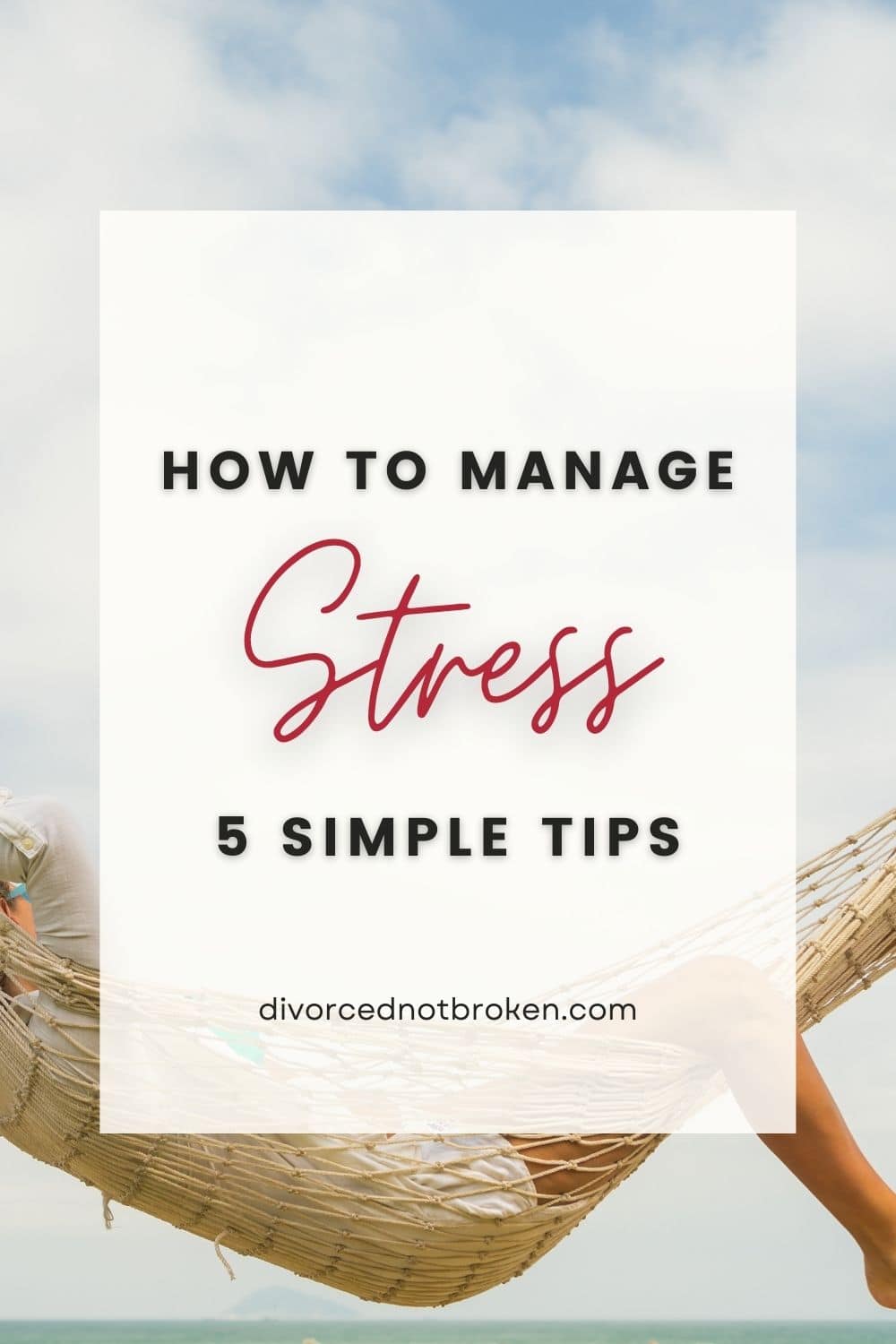How to Manage Stress
Stress is something that comes into everyone’s lives. There might be specific times of the year or in your life when tensions grow high. These are the times to take extra care with your wellbeing. Luckily there are ways to manage your stress so that you can get through these tough times.

Stress is something that can affect not only your mind but your body too. Your health is a priority and stress management should be seen as an essential part of your life. Everyone should get in touch with their stressors and learn how to manage them.
Stress can come in many different forms, so the key to managing stress is to be aware of the symptoms, and to learn how to deal with them while you are feeling it. Take time some time for yourself and make changes in your life that will help you to reduce stress.
Different types of stress
Let’s take a moment to recognize the two main types of stress that impact our lives.
Acute stress
Acute stress comes from a specific event that might be happening in the near future and will only last for a short period of time. A sudden fight or flight situation that spikes your cortisol and metabolism. Examples include a car accident or a confrontational situation.
Chronic stress
Chronic stress is continuous and more long-term stress that can be caused by things like work or school deadlines, financial problems or family issues. While these often get pushed off and not dealt with, this type of stress can have a significant effect on your health and wellbeing.
According to The American Institute of Stress, at least 77% of individuals regularly feel physical symptoms caused by stress. Given this statistic, it’s clear most adults’ stress is affecting their bodies. It can lead to increased risk of heart attack, stroke, diabetes, obesity, musculoskeletal disorders and even Alzheimer’s disease.
The trick to staying healthy and feeling great is managing the stress that affects you.
5 Simple Tips to Reduce Stress
When you’re feeling stressed and overwhelmed, it can be hard to know how to make yourself feel better. Here are some simple things to focus on to help manage your stress.
1. Get adequate sleep
While this might seem like a no brainer, many of us don’t make enough time for a decent night’s sleep. This is especially true of people that work long hours. Sleep is important for managing your mood and it has been shown to improve memory and brain function over time.
Getting the recommended seven to eight hours of sleep every night can reduce the tension you feel in your everyday life. When you consistently miss out on adequate sleep, your risk of heart disease, weight gain, and depression increases.
Tip
Try creating a schedule with a set bedtime that you can stick to and feel refreshed when you wake up to take on the day.
2. Eat a balanced diet
When we feel stress, many of us turn to trigger foods such as sweets and comfort foods to feel better. But eating these foods won’t lessen your stress. Quite the opposite, they’ll leave you feeling sluggish and with low energy.
Try instead to focus on a whole and balanced diet. Being well-fed with nutritious foods will not only help your body feel good but your mind as well.
Foods that have vitamin C, complex carbohydrates, magnesium, and omega-3 fatty acids are the best for stress reduction. These nutrients work to lower your cortisol (aka stress hormone) levels and your blood pressure. Making sure that you fuel your body correctly will help reduce your overall stress.
Check out this Healthy Eating Benefits post for more detailed information.
Tip
Make sure you’re eating enough vegetables and fruits. Try to eat balanced meals throughout the day. Foods like sweet potatoes, tomatoes, mangoes, strawberries, green and red peppers are great options because they’re high in vitamin C.
3. Get active
Activity is one of the best ways to reduce and manage your stress. Nothing helps ease everyday tension like the rush of endorphins that a workout can give you. Exercise is a proven mood elevator that will also benefit your physical health. Being active can help with better sleep, lower blood pressure, and help clear your mind.
Studies have shown that people who exercise regularly have lower levels of anxiety and depression than those who don’t exercise at all.
Tip
Try finding an activity you enjoy. It doesn’t have to be an hour-long HIIT workout. A long walk, an exercise class, or even yoga are great ways to reduce stress.
4. Find your outlet
What goes along with exercise is finding an outlet for your stress. It could be something active, or something on the more creative side. A pastime or activity that is a distracting and fun task for you can give you the outlet you need to release your stress while enjoying yourself.
You may find creating art or music an expressive way to manage your stress. Or you might discover you prefer more physical activities like boxing or DIY projects.
Tip
Try some new hobbies to find what relaxes you.
5. Write things down
While it may seem like a small task, writing down the things that stress you out can give you more space for your thoughts. Often the best way to make sense of something is jotting it down for yourself. It can also be beneficial to write down lists or notes to plan out things that might be causing your stress.
Tip
The next time you have a very stressful and packed day, try writing out a list of all the things that are weighing you down and focus on one at a time. Doing so can help organize your thoughts and make tasks more manageable.
Ready to Manage Your Stress?
These five simple yet crucial tips can help you manage the stress in your life. Try including these in your daily routine and see how they affect you. You might find that one of these areas can transform your life and leave you feeling happier and more peaceful.
What do you do to manage stress? Let me know in the comments below. I’m sure all of us are looking for new ideas!
Check out these Types of Self-Care
For even more ways to improve your health and well-being.
References:
- https://www.stress.org/daily-life
- https://exploreim.ucla.edu/nutrition/eat-right-drink-well-stress-less-stress-reducing-foods-herbal-supplements-and-teas/
- https://www.mayoclinic.org/healthy-lifestyle/stress-management/in-depth/exercise-and-stress/art-20044469
- https://medlineplus.gov/ency/article/002404.htm







